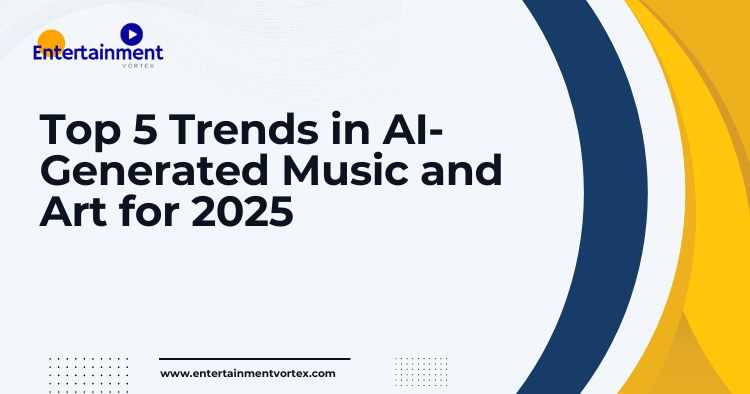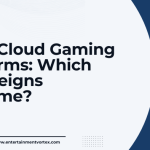Table of Contents
- The Rise of Personalized AI-Generated Content
- Integration of AI in Live Performances
- Collaborations Between Humans and AI
- Ethical Considerations and Copyright Issues
- AI as a Tool for Social Change and Cultural Reflection
As we step into 2025, the world of AI-generated music and art is rapidly evolving. With technological advancements and creative explorations, artists and musicians are harnessing the power of AI to push the boundaries of creativity like never before. In this article, we’ll explore the top five trends shaping the future of AI-generated content, answering common questions and offering insights into what’s on the horizon.
1. The Rise of Personalized AI-Generated Content
One of the most exciting trends in AI-generated music and art is personalization. As algorithms become more sophisticated, they can analyze individual preferences and create tailored experiences. Imagine listening to a song that dynamically adjusts to your mood or watching an artwork that evolves based on your emotions.
What This Means for Consumers
- Curated Experiences: AI can analyze your listening habits, favorite genres, and even your current mood through biometrics or social media activity to create a unique playlist just for you.
- Interactive Art: Artists can create installations that respond to viewer engagement, making each experience unique.
FAQs
Q: How do AI systems learn personal preferences?
A: AI systems utilize machine learning algorithms to analyze user interactions and preferences over time, adjusting their outputs accordingly.
Q: Will this make human artists obsolete?
A: Not at all! Personalized AI-generated content complements human creativity, offering new avenues for artistic expression.
For more insights on AI personalization, check out 10 Essential Tips for Kickstarting Your Scrapbooking Journey for creativity tips.
2. Integration of AI in Live Performances
The integration of AI in live performances is set to revolutionize how audiences experience music and art. From AI-generated visuals that sync with live music to musicians collaborating with AI systems on stage, the future of live events looks promising.
Enhancing the Audience Experience
- Visual Projections: AI can generate real-time visuals that respond to the music being played, creating a multisensory experience that captivates audiences.
- Augmented Reality (AR): Imagine attending a concert where you can use an AR app to visualize the music in your surroundings!
FAQs
Q: Are musicians worried about AI replacing them in live performances?
A: Many musicians view AI as a tool that enhances their performance rather than a replacement. Collaboration is key, as AI can take over repetitive tasks, allowing artists to focus on their craft.
Q: How is AI currently being used in live performances?
A: Artists like Björk and Deadmau5 have already experimented with AI in their shows, using it to create innovative and engaging experiences.
Learn more about engaging experiences in live settings through our article on 10 Fun Hobbies to Enjoy Together with Your Kids for ideas on interactive activities.
3. Collaborations Between Humans and AI
As AI technology advances, more artists are embracing collaboration with AI as a creative partner. This trend is leading to unique and innovative works that blend human artistry with machine intelligence.
The Creative Process
- Co-Creation: Musicians and visual artists can team up with AI to generate ideas, compositions, and artworks that neither could produce alone.
- New Genres and Styles: AI can analyze vast amounts of data to discover patterns and generate new styles, paving the way for entirely new genres of music and art.
FAQs
Q: Can AI truly be a creative partner?
A: Yes! AI can suggest ideas and generate content based on input, allowing artists to expand their creative horizons.
Q: Are there examples of successful human-AI collaborations?
A: Yes, projects like OpenAI’s MuseNet and Google’s Magenta have produced fascinating music by collaborating with artists.
Check out our article on 10 Creative Ways to Turn Hobbies into Profitable Side Hustles for inspiration on how creativity can lead to opportunities.
4. Ethical Considerations and Copyright Issues
With the rise of AI-generated content, ethical considerations and copyright issues have come to the forefront. As AI creates works that may closely resemble those of human artists, it raises questions about ownership and originality.
Navigating the Legal Landscape
- Copyright Claims: Who owns the rights to a piece of art or music created by AI? This question remains largely unanswered and is the subject of ongoing legal discussions.
- Attribution: As AI-generated content becomes more prevalent, proper attribution to both human and AI contributors becomes essential.
FAQs
Q: Is AI-generated art considered original?
A: The originality of AI-generated art is a gray area. While AI can create unique pieces, the algorithms are often trained on existing works, complicating the issue.
Q: What are the current laws regarding AI-generated content?
A: Laws vary by country, and the legal framework is still evolving. It’s crucial for artists and consumers to stay informed.
For more on the ethical implications in creative fields, see 10 Essential Tips for Craft Fairs Prep & Expectations Guide.
5. AI as a Tool for Social Change and Cultural Reflection
AI-generated music and art have the potential to reflect and influence societal issues. Artists are using AI to comment on social justice, environmental concerns, and cultural identity.
Art with a Purpose
- Advocacy: AI can help create powerful visual narratives and soundscapes that highlight social issues, encouraging audiences to think critically.
- Cultural Preservation: AI can analyze traditional art forms and music styles, helping to preserve cultural heritage while allowing for innovative reinterpretation.
FAQs
Q: Can AI-driven art genuinely advocate for social change?
A: Yes! Art is a powerful medium for expressing social issues, and AI can enhance that expression by reaching wider audiences.
Q: How can AI help in preserving cultural heritage?
A: By analyzing and cataloging traditional art forms, AI can assist in preserving and revitalizing cultural practices that may be at risk.
Explore how AI is influencing social change through art in our article on 10 Unique Holiday Traditions to Create with Your Family.
As we look towards 2025, it’s clear that AI-generated music and art will continue to transform the landscape of creativity. By embracing these trends, artists and audiences alike can navigate the exciting possibilities that lie ahead, fostering a collaborative and innovative future. Whether you’re an artist seeking inspiration or a fan eager to experience the next wave of creativity, there’s no doubt that AI will play a pivotal role in shaping the cultural narrative of our time.






